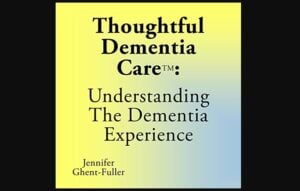When a fragrance wafted through the bedrooms of older adults for two hours every night for six months, memories skyrocketed.
In fact, neuroscientists at University of California, Irvine found that participants in the study reaped a 226% increase in cognitive capacity compared to the control group.
The researchers say the finding transforms the long-known tie between smell and memory into an easy, non-invasive technique for strengthening memory and potentially deterring dementia.
The team’s study findings appear in Frontiers in Neuroscience.
Method
The project, conducted through the UCI Center for the Neurobiology of Learning & Memory, involved men and women aged 60 to 85 without memory impairment. All were given a diffuser and seven cartridges, each containing a single and different natural oil.
Dementia Books & Videos on Amazon:
FREE Newsletter:
People in the enriched group received full-strength cartridges. Control group participants were given the oils in tiny amounts.
Participants put a different cartridge into their diffuser each evening prior to going to bed, and it activated for two hours as they slept.
Findings
People in the enriched group showed a 226% increase in cognitive performance compared to the control group, as measured by a word list test commonly used to evaluate memory.
Imaging revealed better integrity in the brain pathway called the left uncinate fasciculus. This pathway, which connects the medial temporal lobe to the decision-making prefrontal cortex, becomes less robust with age.
Participants also reported sleeping more soundly.
Loss of Smell
Scientists have long known that the loss of olfactory capacity, or ability to smell, can predict development of nearly 70 neurological and psychiatric diseases. These include Alzheimer’s and other dementias, Parkinson’s, schizophrenia and alcoholism.
Evidence is emerging about a link between smell loss due to COVID and ensuing cognitive decrease.
Translating Research to Therapy
Researchers have previously found that exposing people with moderate dementia to up to 40 different odors twice a day over a period of time boosted their memories and language skills, eased depression and improved their olfactory capacities.
The UCI team decided to try turning this knowledge into an easy and non-invasive dementia-fighting tool.
“The reality is that over the age of 60, the olfactory sense and cognition starts to fall off a cliff,” said Michael Leon, professor of neurobiology & behavior and a CNLM fellow. “But it’s not realistic to think people with cognitive impairment could open, sniff and close 80 odorant bottles daily. This would be difficult even for those without dementia.”
The study’s first author, project scientist Cynthia Woo, said: “That’s why we reduced the number of scents to just seven, exposing participants to just one each time, rather than the multiple aromas used simultaneously in previous research projects. By making it possible for people to experience the odors while sleeping, we eliminated the need to set aside time for this during waking hours every day.”
Findings Connect Smell to Memory
The researchers say the results from their study bear out what scientists learned about the connection between smell and memory.
“The olfactory sense has the special privilege of being directly connected to the brain’s memory circuits,” said Michael Yassa, professor and James L. McGaugh Chair in the Neurobiology of Learning & Memory. The director of CNLM, he served as collaborating investigator.
“All the other senses are routed first through the thalamus. Everyone has experienced how powerful aromas are in evoking recollections, even from very long ago. However, unlike with vision changes that we treat with glasses and hearing aids for hearing impairment, there has been no intervention for the loss of smell.”
The team would next like to study the technique’s impact on people with diagnosed cognitive loss. The researchers also say they hope the finding will lead to more investigations into olfactory therapies for memory impairment. A product based on their study and designed for people to use at home is expected to come onto the market this fall.
MORE INFO:
The study was supported by Procter & Gamble.
SOURCE:
University of California at Irvine
REFERENCE:
Woo CC, Blake M, Sathishkumar M, Dehkordi-Vakil F, Yassa MA, Leon M. Overnight olfactory enrichment using an odorant diffuser improves memory and modifies the uncinate fasciculus in older adults. Front. Neurosci., 24 July 2023, Sec. Translational Neuroscience. Volume 17-2023. DOI: https://doi.org./10.3389/fnins.2023.1200448












So how can we receive notification when the product is on the market please??